Global Crisis Overview
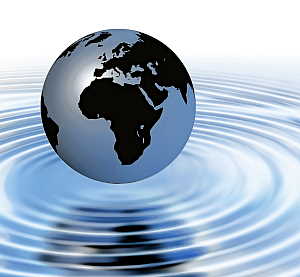
Social Dysfunction & Impact Of World Events Not only do we affect the external world, but the external world impacts on us, where global relationships, the unstable world can affect our own stability, mental health. Alongside uncertainty we can experience existential loneliness, alienation, feel part of a collective, universal sadness. Interrelated events in the world can be experienced as turbulent - undergoing a critical and unpredictable phase, symptomised through climate change, environmental breakdown. The term "polycrisis" (coined by French philosopher Edgar Morin) refers to multiple, interconnected complex situations, which amplify each other impacting upon a global crisis, and this can be too vast for many of us to grasp (see also What Else Might Be Going On That We, Society Don't Act, Change?). Alongside climate change, capitalism in crisis, a growth insistent world economy, the impact of wars (where military might, nuclear weapons can destroy the planet), migration, misuse of algorithms driving what we see, artificial intelligence - AI (alongside its energy and water consumption/resources of data centre usage), the impact of cyber-attacks, biotechnology, genetic engineering, pandemics - all these can be considered part of the polycrisis we are experiencing. It is argued that other factors also contribute to major world events, environmental breakdown, global crisis, fragmentation, including:
- Overlooking, that land gives us life and the planet is co-created (not created by humans)
- Many beliefs, assumptions, systems and practices, alongside omnipotent thinking may be counterproductive to civilisation thriving, evolving
- We may be grieving humanity and unbalanced, unnatural and disrespectful ways of living, lack of collective responsibility, global cooperation in psychologically dysfunctional societies, unsustainable social structures rooted in power dynamics in an inherently win/lose way of living is unaligned to global and human needs, or a softer, yet powerful, way of living
- Polarisation - thinking in absolutes
- Political crisis, including populism (e.g. media bias, soundbites, views, which on the surface sound simple and good), or personalities over policies that bring people together & excessive pride, unsustainable political systems - the way we treat the planet (or in democracies, traditional left and right politics) - see also New Paradigms Within Local & Global Politics
- Authoritarian leaders
- Dystopian systems of conflict, control, oppression
- Short-termism & lack of long term, sustainable action
- Social injustice, collective narcissism and individualism, that harms other people and the planet, and is out of tune with community, the wider world, interdependence, interconnectedness
- Power imbalance, resulting in separation, alienation from the world's dominant forces
- External, social, environmental factors of loneliness - relationship with our environment & impact upon ourself
- Freedom of speech, no matter what, can become corrosive
- How certain technological forces can be alienating of the soul, can't solve climate change alone & are reshaping social cohesion (e.g. biased, unregulated, unethical algorithms, artificial intelligence - AI)
- We, others, the world may be affected by injustice, social inequality, values system in society, that just aren't fit for purpose, alongside globalisation, privatisation of state assets
- How the human race may at an adolescent or ego stage of development, coming from goals of power, control, greed, dominance as opposed to a maturer higher self's goals of caring, kindness, peace, respect for all life, sustainability, the world around us
Climate Change Anxiety, Eco-Distress & Grief
I believe that we are engaged in committing suicide: intellectual suicide, moral suicide and physical suicide. If there is anything as important as stopping us poisoning our seas and destroying our forests, it is stopping us poisoning our minds and destroying our souls.Ian McGilchrist
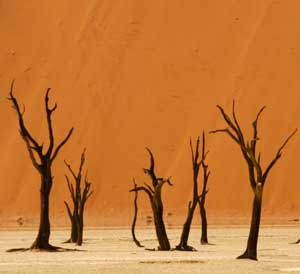

Societal Dysfunction, Climate Change, The Impact Of Eco-Anxiety, Climate Grief, Collective Trauma - What May Be Happening Inside It can be as if we overlook that each human being and nature are the same - not separate - so we have human rights laws, yet there are ineffective "rights" for planet Earth. Understandably, we may feel disturbed by attitudes, actions (and non-actions) about earth's natural resources, nature. The British Medical Journal describes eco-anxiety, eco-distress as a chronic fear of an environmental doom and the American Psychology Association describes eco-anxiety as "the chronic fear of environmental cataclysm, that comes from observing the seemingly irrevocable impact of climate change unfold and worrying about the future of oneself, children and later generations". Valuing community, creation, life itself, all life, we may personally and collectively be anxious about the planet, experience global grief. We may have lost connection with others and the rest of the world, our own sense of belonging and have been living as if separate from our body, each other (and the body of our interwoven environment), our interconnectedness - all one at some level. We may have a strong reaction to what we care about. We personally didn't agree for the way the world treats the planet, and we are never going to change the climate on our own. We may have lots of feelings, reactions, thoughts, ideas in terms of what's happening to the planet, and we may want to create, heal, align with the energy of the planet through energy work - for where we put our attention, energy flows. We may judge ourself, blame ourself, feel guilty, ashamed, fearful, frustrated, righteously angry, outraged, heartbroken, have a sense of meaninglessness. Some reactions can be counterproductive if we remain immobilised, stuck, hopeless in this place. We may need to not only drop blaming ourselves, but also others. We may therefore need a new paradigm for sustainability.
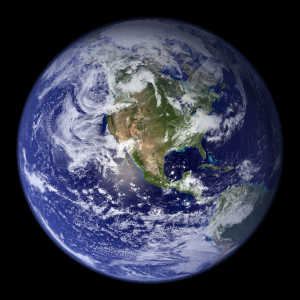
Talking About State Of Planet Health, Eco-Anxiety, Eco-Distress, Climate Grief, Environmental Breakdown, A Crisis Of Spiritual Consciousness & Action Therapy does not exist in isolation from the outside world, therefore we may want to talk about what the environmental crisis means for us - how it affects us, any specific concerns, fears, responses in all its impacts, including protecting Earth's finite resources, e.g. species depletion ("Biodiversity is the bedrock of life and a cornerstone of sustainable development" - UN Secretary-General António Guterres), alongside the impact of microplastics, global heating, climate crisis, climate emergency, climate anxiety, depression, eco grief, bio-diversity crisis, erosion, climate pollution, plant depletion, green issues, ecopsychology, ecologism, air pollution, water pollution, droughts, nature loss, global change of ecosystem, animal cruelty, extreme weather (e.g. floods, wild fires), energy crisis, water crisis, social collapse, climate destruction, wars, death, ecocide, demographic decline, disharmonious effects upon dysfunctional relationships. This can be called Anthropocene - how human behaviours and actions have influenced the climate, environment, through dominating creation, disrespecting nature as if we can have mastery over it, rather than being a respectful holistic participant within it, recognising that the richness of the world is our shared, interconnected home. We may also be concerned or affected by the impact of monoculture, deforestation, depletion of Earth's precious, essential minerals (including rare elements, precious metals), zoonotic diseases from other animals jumping to humans, food production, over-population, and population displacement, water shortages through rainfall changes, patterns of changing climate. Taking many years of human evolution, as a human species we have been pretty good at innovation, adaptation - survived plagues, wars, migrations, natural disasters and previous climate change (see also What Personally Can We Do?). What goes on in the world impacts on us and the therapy offers a space to talk about any disturbance, numbness, impotence, grief, frustrations, stress and trauma, maybe anger and rage (all of which are understandable responses about what's happening to the planet). The counselling for eco-anxiety, eco-distress, climate depression can be a space to talk about these and other concerns, responses.
All things in nature, even the universe itself, have their span of existence, birth and death, beginning and ending.from Amaravati Buddhist monastery writing of the meditation teachings of Ajahn Sumedho
All that we perceive, and can conceive of, is change, it is impermanent. So it can never permanently satisfy you.
What Else Might Be Going On That We, Society Don't Act, Change? Both individually and collectively the situation out in the world can seem too vast. Yet, we can feel release, empowered when we let go of what holds us back. We and others may:
- Struggle with uncertainty
- Hold inflexible, concrete thinking
- Disavowal - acknowledge what's true, yet convince ourselves it doesn't matter by bending the truth, keeping our thoughts separate from feelings, so the real picture need not trouble us, that we can feel undisturbed (and group disavowal through socially constructed silence)
- Ignore the perceived drip - drip effects on climate change, because the human brain may be wired to act only upon immediate danger
- Be in denial (e.g. when a conscious fact we repress, and its psychological implications are denied)
- Minimise (e.g. there is probably some truth in what is happening)
- Be part of a socially constructed silence
- Negate - saying what is true is not true (it can often be too painful to accept reality and mourning)
- Not want to risk unpopularity, stand out
- Instigate or believe conspiracy theories
- Hold an irrational belief that mother nature (like our own mother) will clear it all up
- Feel hopeless, helpless, carry a sense of impending doom (e.g. the world has already lost the battle, why even have children, why do anything), environmental cataclysm - that destructive and violent events impacting upon the environment are due to human actions
- Experience hyperobjects - a term coined by Timothy Morton - that the many systems involved are too vast, complex to see all at once
- Feel in collective shock, collectively paralysed, traumatised
- Feel distressed - it's all too much
- Psychologically numb ourselves, feel impotent
- Struggle to forgive ourselves, others
- Carry a death drive
What Personally Can We Do? It's understandable that we can numb ourselves, not want to think about what's happening to the planet. (For some of us it may also be important to realise that throughout millions of years the planet has gone through many cycles of profound climate change.) Focusing on our helplessness, fears and dramas, shame and guilt, means this is what we create. Re-evaluating what makes our life worth living, repairing what we can, remaining connected with nature, joy and supportive others, not overloading ourself with information, living for each day, being in the moment, may be important to us. And this climate crisis calls upon personal, local and global action through exploring our relationship with nature and the environment - what's happening inside us, alongside acknowledging the existential threat of life. Some can view this crisis as needing both practical and spiritual responses, acknowledging consciousness in and beyond us. A starting point for some can be paying attention to, appreciating, valuing what we love in the world, with gratitude - even the small things (e.g. nature a favourite place, simplicity, the people in our lives, what brings us joy). And when we Love, we are also capable to both grieve what's happening to the planet, and respond. Honouring our personal integrity we may want to show up in our own way in taking some sort of action, choosing where we put our attention, utilise our resources, skills and powers available to us, alongside our imagination, infinite creativity, courage (and modelling this for others). We may have good networking, communication, healing, practical skills or want to develop expertise in certain areas. Coming from the heart, we (and indeed all of us) may want to engage in environmentally beneficial behaviours, exploring what abundance, laws of attraction mean for us. We may want to add our contribution towards personal and universal good, to proactively, sensibly use Earth's natural resources, healing the planet through relational responses. This may include exploring how we can move from any rigid thinking, fear, dread, impending doom and catastrophe to appreciation, stewardship of the planet as guests in the world, towards building emotional resilience, hope, transformation focusing on our vision, supporting the economic, physical, emotional, spiritual health and cultural change of all and taking action towards serving life, building communities. This may begin by identifying what matters to us, focusing on small, constructive, meaningful actions acknowledging that right now the planet can't be fixed, yet can be ethically managed. We may also want to explore our practical skills, innovations, utilise our emotional intelligence, think "outside the box", network and work collaboratively in communities, utilising our communication skills in order to continue to enjoy life and be active towards climate justice, positive climate change and action - as Shelly writes "Rising like lions in slumber".
Relational Response Without Taking Sides Taking sides where "We're the good guys, you're the bad guys" is ultimately counterproductive. Finger-pointing, demonising, scapegoating, blaming, "othering" will simply alienate others (and ourself). We may want to foster dialogue in cooperation, meet others where they are at, utilise our emotional intelligence, develop relational responses, grounded, anchored in our self and safe enough inside, be willing to listen and learn about ourselves, each other, have respect and recognise others' intrinsic values, the positives, have empathy for where others are coming from, their point of view. Being confident in our power, taking a stand, mobilising our energy towards our future vision, a belief that things can be different and holding compassion, embracing others with opposing sides, bringing people together, can be more productive.
A forever growth insistent world economy is unsustainable Denying cause and effect, some of us may live as if we own the planet, that growth has absolutely no limits. Growth in children is finite and stops in adulthood, because they have reached their optimum height. Yet in institutions we don't have this internal regulation, because we are told that for continuous growth, our wellbeing is dependent on ever-growing economies (often as a result of more loans, debts, more consumption - spend more and more on what we don't really need in order to maintain this so called growth). It can be as if everything is disposable, yet the container of our earth is not disposable. We may ask ourselves, what is the point of permanent monetary growth if the planet is going in the opposite direction, depleting, and slowly dying. We may need to move away from massing individual, personal wealth, individual corporate wealth, individual sate wealth, towards a common wealth (commonwealth). Like the story of the child pointing out to others, that the emperor has no clothes, many of us struggle to believe what is in front of us, what we see, and:
- This may include lack of effective fair trade laws
- That big business, private equity is not always on-board, because climate crisis is not just another business opportunity
- We can witness a world of dysfunctional money management, fractional reserve banking - loaning money that doesn't exist, qualitative easing - the artificial printing of money, money obsession, individual & collective greed, financial wealth preoccupation, the cost of maximising shareholder value
- Unhealthy competition, economic imbalances & profit to institutions, private equities, do not profiting the planet, creating unsustainability
- We can end up living in an illusory world that "knows" financial truths has all the answers supported by half-truths, distorted, manipulative reporting e.g. carbon offsetting can look impressive only on paper, camouflaging meaningless, placatory, notional, soundbited targets, which are modest and ineffective in the long term, bending, distorting statistics, how countries, companies try to show how carbon neutral they are and what a great job they are doing. Yet meanwhile the earth speaks a different language, telling us something different and the disconnection between the two, is symptomised by the planet's sickness.
- When decisions are made, actions taken by investors interests, or by the very few, the powers that exist are not always acting in the best interest of people - the planet, where economic health is in hock to hedge fund investments, venture capitalism, bond market speculation on future outcomes (negative or positive) at the cost of a real economy & long term sustainability
- That commodification of land - land grabbing, land buyoffs leads to people's dispossession, where corporate policy-makers ensure global prices (e.g. essential commodities, food) are subject to stock market fluctuations
- Economic systems are dependent on permanent growth for institutions, that are no longer fit for purpose, at the cost of prioritising people's, earth's wellbeing (e.g. emphasis on GDP and that financial systems are interconnected, operating globally, yet there are minimal, interconnected, coherent, globalised responses to a planet, which doesn't recognise borders, nor selfish, national interests)
- Materialistic selfishness, becomes so individualistic based on rampant consumerism - the downside of neoliberalism, capitalism, especially if it lacks transparency
- The botanist Robin Wall Kimmerer writes how indigenous cultures don't recognise land ownership. In the name of "progress", financial institutions, economic growth dominates, where a one-size-fits-all "expert" system, denies local knowledge, ancient wisdoms of indigenous people who centuries ago realised we are all connected & acknowledged the consciousness of the planet, making no separation between mind, body, earth, which gets lost in the name of hollow, emotionally bankrupt, so-called "impressive" "progress" at the cost of valuing global & genuine, human connections. We may ask who actually owns the earth and are we custodians of it.
We are in danger of destroying ourselves by our greed and stupidity.Stephen Hawking

New Paradigms Within Local & Global Politics Out of tune with nature, it can be viewed that society is sick, symptomised through the environment around us. Acknowledging the limitations of individual lifestyle changes of technology, science, politics, we may feel frustrated by lack of radical system change and radical action by governments to stop climate catastrophe. Within an international, global context, whatever political systems exist around the world, the planet needs new institutions with new ideas and this global crisis can be a wakeup call in prioritising the humanity in all of us. Whatever type of government, political systems or hybrid (monarchy, autocracy, dictatorship, authoritarianism, oligarchy, totalitarianism, meritocracy, democracy), the planet is uninterested in these, including patriarchy, combative party politics (for whatever politicians say - it doesn't change the reality of physics). Governments themselves may be understandably reticent if they propose radical, yet necessary costly changes, affecting our lifestyles - yet that may be exactly what needs to be done. All these conventional, political systems may be irrelevant towards healing the planet, including democracy, which has its own challenges in tackling global crisis (it was Churchill who once said, "Democracy is the worst form of government, except for all the others"). Democracy can be experienced as a façade, with illusions of control, when it claims to uphold democratic values, yet manifests within hierarchical top-down power by controlling communities, overriding egalitarianism, civil liberties, where token checks and balances are shallow, which actually oppress rather than liberate. We may feel duped for going along with corrupt forces, misguided leadership, failure to adapt and want to take heartfelt, conscious, effective, long-term action beyond left/right party politics, political polarisation. We may question what is the point of democracy if on the surface it's a seemingly functional system, yet also a veil to protect the interests of institutions, who are detached from real life experiences - some of them corrupt, where (ironically a select few) individuals hold concentrated power, or with others who have deceitful, selfish, harmful goals, that may be manipulative, spreading false information. Social media can be a culprit here. It may therefore be crucial for innovative systems to be informed, vigilant and engaging in order to resist forces, that may seek to undermine true democratic principles including living in sustainable ways that support both individual and collective good, where there is healthy, ethical negotiation (see also Freedom Of Expression, Freedom Of Speech). The climate is in action, yet we may experience our leaders' inaction with vacuous warm words without effective deeds or no serious, wise and global leadership, nor prioritising long-term sustainability. Democracy, when in the right hands of mature, effective leadership linked to sustainable values, delegated to people we trust, is intended as a powerful tool for order, liberty, justice and equality at its core. Democracy is supposed to be about transparency and accountability, built on principles of respect for human rights, dignity, collective decision-making, fully participating with and involving communities upwards (so it's not top-down or power over others) on a long-term basis - where all have a voice, contribution through open dialogue. This needs safeguarding to protect subversion, protect us, the planet. (Yet democracy itself can be experienced as under threat by billionaires, corporate cultures, tech oligarchs, who undermine and silence democracy and fairness through forcing vastly unaffordable, complex legal cases, disempowering, suing and bankrupting less well-off individuals, democratic agencies, who can't afford legal fees - this may include arranging for paying off settlements to silence truth, democratic processes.) Another threat to democracy can be use of subversion, misinformation by states, countries, either directly or by proxy, often via social media, or cyber attacks.) Responsible governments may need the courage to ditch outdated, parochial attitudes, and take long term sustainable actions, in-spite of risking not being electable and when in power, to follow through their commitments with delivery. Utilising our critical thinking, moving towards momentum, we may want to be more empathic, active, creative out in the world, towards making, adapting communities more resilient, through radical transformational change, holding our politicians and any petty tribalism to account and no longer be puppets to the puppeteers. Power may need to be redefined as not coming from external forces, material successes and wealth (see also A forever growth insistent world economy is unsustainable), exploited by those in control through misinformation, censorship or divisive narratives, undermining global public trust. These old paradigms promote politicising, separation, stigmatising, monetising, stereotyping, division, fear and depletion. Structures we once relied upon may no longer serve us or the planet and may be collapsing. As we let go of our old ways, new possibilities can emerge. The time may be ready for transcending, transforming the limitations of the past, a reworking and reimagining of political systems with international, global collaboration, which moderates inequality, enhances democracy (or fresh, untried political ways), towards an inclusive way of connecting with populations, living compassionately, spiritually awakened and aligned, honouring life's sacredness, interconnectedness, our commonalities, the wellbeing of people, the planet, placing a reshaped, green economy at the forefront with nature-based solutions, tuning into forms of energy, valuing consciousness in and beyond us, in service of the planet. Developing the skills to aim for fruitful outcomes with people we find difficult will be challenging, as may at times be fostering a dialogue of cooperation. Politics may not be the only tool for global change. And co-creating a new reality through collective social integration, relational consciousness - that others' wellbeing is interconnected, putting trust in the Earth, may well take radical attitudes, intentions, fresh ways of listening and thinking through clarity, courage, faith, Love, hope, creativity, orientating our heart towards action, in a peaceful, cooperative world, which acknowledges not just personal values, but nature's global values, all infused with respect and love of the planet (which politicians can't legislate for). It was Milan Simecka who exclaimed, "A world without utopias would be a world without social hope, the world of resignation to the status quo and the devalued slogans of everyday political life".
Who cares about which political system is better? The issue is, can we live together? ... We are one single tribe.Carlo Rovelli
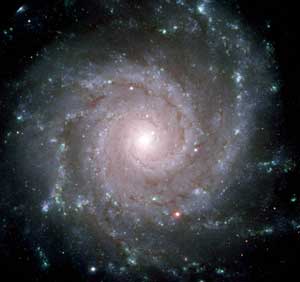
Different Paradigm For Sustainability, Both Personally & Collectively As long ago as 1987 the UN's Brundtland Report (also called Our Common Future) attempted to define sustainability "Development that meets the needs of the present without compromising the ability of future generations to meet". Acknowledging the need for reparation, the Quaker movement define sustainability as living in a way we bequeath to the next generation that leaves the planet in the same or better state through stewardship and address the need for "sustained" sustainability through a number of qualities: truth, equality, simplicity, beauty, peace (see also Peace Of Mind, Stilling Our Mind, Contentment, Inner Peace, Internal Calmness - What May Help). This goes against our current ways of living, as if we humans possess, own the planet, necessitating a paradigm shift towards a collective awakening and visionary landscape in our collective minds, putting these qualities into personal and collective action, including global guardianship, trusteeship, stewardship (who actually "owns" the seas, nature, the planet, other planets). When ignorance and greed dominate the need to conquer and consume, this causes imbalance, and humanity has a choice to keep this going, or let go of these, as we awaken to evolve through self-awareness, inner transformation, evolving to collective transformation, so there is no separation, and more of a coexistence in partnership (e.g. science with spirituality, intellect with intuition) - valuing creation (and co-creation) over destruction. Over centuries civilisation has stepped into and responded to various paradigm shifts (which may include peaceful evolution or necessary revolution). In terms of sustainability, the way things currently are in the world may not be working for many of us, pointing towards a profound catalyst for change. And it could be said that the world is focusing on the wrong things (for as W.H.Auden once said, "The most important truths are likely to be those, which society at the time least wants to hear"), especially when it feels dystopian, alienating from the heart, mind, spirit and is out of tune with ourself, community, the wider world, our interdependence, interconnectedness, oneness, unity and shared purpose (Pope Francis pointed out that, "Interdependence obliges us to think of one world with a common plan"). Global problems ultimately need global solutions - alongside local ones. This requires structural shifts and global consciousness, collective global actions. "Think global, act local" Patrick Geddes states and this can be developed both locally and globally. The British Quaker movement back in 1988 also made a clear statement acknowledging the sanctity of life, that the human footprint on the globe needs to be light and undamaging: "Our planet is unstable, seriously ill and we can feel the pain. We have been reminded of the many ways in which the future health of the earth is under threat as a result of our selfishness, ignorance, greed and need to face the loss of old ways of living, that no longer serve us and the planet, so we can repair our relationship with the natural world. Our Earth needs attention respect, love, care, and prayer". We may acknowledge, that unloving, universal damage has been done to the planet, now requiring universal love and action, prioritising the planet in all our lives - a progressive move from grief to hope, supported through right relationship with the planet. As in relationships, there can be an imbalance between givers and takers, and how we personally and collectively give and take from the planet may need to be radically changed, transformed and radical problems need radical solutions. We have yet to discover, decide upon, act with different sustainable ways of living - maybe seeking fulfilment from enjoying rather than "getting", living a softer life - powerfully, only contributing towards sustainable investments, economics (this may uncomfortably also require radically tackling inequality, redistributing finance on a global scale - see also A forever growth insistent world economy is unsustainable). The possibility of this different paradigm may include embracing universal principles, tuning into forms of energy, consciousness (the 100th monkey theory), co-creation, imagining the world we want to live in - envisioning this and moving, living towards this. Placing healthy sustainability in all its manifestations may need a fundamentally different global paradigm, rising above narrow state and political interests - for the planet is not political. This paradigm may include holding alternative visions of humanity, what it means to be in and part of society, centring or real needs, rather than short term desires in a world not of unrealistic utopia but more towards a pragmatic, achievable eutopian way of living through new frameworks of tools. (We may need to bear in mind the wisdom of Audre Lourde who once noted, "The master's tools will never dismantle the master's house".) We may need to acknowledge what connects and disconnects us, what is disharmonious, harmonious, and recognise what's happening to the planet as a spiritual crisis, ultimately requiring spiritual solutions as partners and beneficiaries, and for some through spiritual depth, consciousness both in and beyond us with planet-sustaining living and actions, striking a balance between life's material and spiritual world, aligned with laws of attraction.
The world we have made as a result of the level of thinking we have done thus farAlbert Einstein
creates problems we cannot solve at the same level of thinking at which we created them.
Technology & Power Dynamics
Algorithms Notwithstanding implicit, explicit power dynamics in play, algorithms can make life easier, open and create wonderful opportunities, yet we are also at the mercy of algorithms, and these don't necessarily promote diversity of thought. Algorithms are not passive, or emotional, have been in use for many years (e.g. weather forecasting). They can help us lead more interesting lives. Algorithms are machine learnings, very complex sets of instructions - written in code, telling computers how to solve problems through Artificial Intelligence (AI) and machine learning, which can extract as much vast information, data on us - building up a picture, predicting what's likely to draw us in. They can draw us in deeper and deeper, be viewed as fighting for our time and attention as long as possible. Algorithms are said to set the rules of the internet, with an aim to capture the audience (also through click-baiting rage-baiting, exploiting reactions, designed to evoke anger, encouraging clicks). They hold certain biases and if not properly tested, or the data is partial or wrong, it can't discern. However, when we come across unregulated, confirmation-biased algorithm-driven content, our perception and choices are shaped by machine-learned factors, nudging us in directions that programmers have built codes for, with marketing-led information and advertising, pop-ups, false news, fake news, propaganda, unreliable information, misinformation - false claims, incorrect, inaccurate, false information or disinformation, sometimes under the guise of free speech. Supervising and regulating ethical algorithms, so they don't incentivise human damage, may be important. And some of these concerns have been picked up by DelibTech - Human-Centred Principles for the Design and Implementation of Deliberative Technologies
People will come to love their oppression, to adore the technologies that undo their capacities to think.Aldous Huxley


Impact Of AI, Artificial Intelligence Tending to hold a male perspective, AI facilitates machines to do things that have historically only been done by humans through simulation of what humans can do (both more of and less of). It is just a tool and what we make of it. Electricity, computers and a range of other innovations transformed the world for better and worse, and AI can be viewed as having the same potential. Bringing benefits and evolution to human beings AI is ever-changing and achieves remarkable things. And what was once science fiction is now fact in certain areas. It's very good at giving us select information and filtering it down, allowing us to be more efficient. AI, when regulated with values for the benefit of humanity, can be a force for good, with transparency, openness and ethical algorithms can have many advantages, make life easier, open and create wonderful opportunities. One human being cannot comprehend everything or make sense of things and AI attempts to address this. AI is embedded in everyday life. It has reshaped how we experience the world, connect with others. AI and its applications have great usefulness, huge opportunities, yet also challenges, with potential destructive impacts when unaccountable to human beings and frustrations around its inflexibility, when we are shoehorned into often binary responses, compounded when "computer says No". It leaves a footprint. AI is a vast array of technologies demonstrated by computers and is in the hands of the very few owned by powerful individuals, corporations, states and there is no global consensus about its management, principals, security, policing it, containing it, where different AI application behave differently. We may question who benefits and who is being harmed through the spread of AI and its auto-generated content. Knowledge is different to information and digital intelligence is very different to three-dimensional human imagination, intelligence and some AI applications attempt to mimic or surpass human intelligence. AI is a statistical model of language, it does not have real intelligence, nor does it have human common sense, or experience reality, where the values of free speech can be eroded. Nor does AI directly experience sentience, consciousness, intuition, senses the same as human beings. Sometimes within AI part of what we see or hear are facts. Yet, this can be a way to draw us in to believing more of what sounds plausible, convincing, so we need to utilise independent sources. Some of us view the existential risks of unregulated AI outweigh the benefits, and prefer tight regulation, so there is transparent disclosure of its usage, and others - less regulation, so it doesn't stifle, suppress innovation, believing that the benefits outweigh the risks. Global regulation, so data use is unbiased and technology respects human rights, so it is trusted, may be important for us. And it may be important to address the dilemma between what we consume and what we value, whether AI contributes to healing the planet, or is part of the global crisis. The speed in which AI technologies operate is gigantic. Legal systems and regulatory frameworks may be playing catch up as to who controls quantum computing, AI, "the artificial human" and to what end - this includes ownership of intellectual property (see also Ownership, Guardianship, Trusteeship, Stewardship). Regarding the impact of artificial intelligence, technology we may wonder if the balance is about right towards benefiting society and the cost to society, are they harmful or do they improve our world. Questioning so called "reality" can be wise. Either way it may be important to not just cherry-pick information, but research it well, trust quality content that is fact based, independently verified and referenced with its source and that there are some trust principles in place, alongside ethics. It can help to remind ourself we have choice over what sources we view and be mindful of how it makes us feel. And as for AI's accuracy, we may need to take responsibility for this ourselves through discernment, critical thinking, where human beings need to make final decisions, yet it puts autonomous systems in control of AI and as AI continues automating human activity, controlling what is done with information. AI's usage can be a wake up call to prioritise humanity - for in an over-technological world, it would be people's skills, like communication, responsible leadership, that may be even more important.
When the farthest corner of the globe has been conquered technologically and can be exploited economically; when any incident you like, in any place you like, at any time you like, becomes accessible as fast as you like; when you can simultaneously "experience" an assassination attempt against a king in France and a symphony concert in Tokyo; when time is nothing but speed, instantaneity, and simultaneity, and time as history has vanished from all Being of all peoples; when a boxer counts as the great man of a people; when the tallies of millions at mass meetings are a triumph; then, yes then, there still looms like a specter over all this uproar the question: what for? — where to? — and what then?Martin Heidegger
AI & Its Perceived Benefits, Advantages In Supporting Areas In Our Life
- When AI is connected to intentional humanity
- Analyses & acts upon information gathered
- Huge economic benefit
- Solves complex problems, saves so much time, social challenges
- Replaces tasks (especially repetitive, dangerous tasks) once done by humans
- Efficient decision making & aids people to make better informed decisions
- Artificial intelligence (AI) or artificial general intelligence (AGI) can match or exceed certain human capabilities by digitising processes
- Can outperform human cognition
- When editing, very helpful in suggesting corrections, alternative texts
- Advances science, medicine, supports medical research, health & medicine - through automatic algorithms, forecasting, diagnosing diseases, cancer risk
- Accessing swifter justice with the courts & cheaper legal fees
- Helps grow food more efficiently & cheaper
- Transforms entire industries
- Enriches our lives, making them more efficient
- Enhances professional and personal life, e.g. through generating images, videos, emails, invoice processing
- Provides automated services, so costs are lower
- Provides access to educational opportunities
- Environmental benefits - protecting future deforestation, in farming can predict high areas of yield
- Efficiently harvesting data, accessing vast amounts of information
- Can identify fraudulent transactions
- Shift the nature of jobs, with work opportunities created
- Can screen job applicants
- Produces productivity gains
- Improves quality of service through voice & facial recognition
- We can have our own AI personal assistant
Technology is neither good, nor bad; nor is it neutral.Melvin Kranzberg
AI Concerns & Its Perceived Harms, Disadvantages In Undermining Areas In Our Life
- AI produces averages
- Cyber-attacks, fraud, becomes dangerously common place
- Crime & online safety proliferating (e.g. usage of AI-generated sexually abusive material)
- The causal impact between input (enabling benefit) & outcomes / outputs (can present direct threat to ourself, livelihoods)
- Disrupts social cohesion, societies. AI may become inhumanely destabilising threatening the world economically (including employment opportunities drastically reducing throughout many sectors), socially, democratically, existentially, spiritually, politically and militarily (use of AI in transforming modern warfare, e.g. the perniciousness & dangers of nuclear materials, autonomous weapon systems, which select and attack targets without human intervention)
- Unfettered, unregulated surveillance
- Dehumanises, devalues, alienates human contact
- A blurring of boundaries as to what's real, authentic, and what's deceitful, inauthentic
- When AI is unregulated, this can undermine human cognition in the hands of the powerful (especially if the goal is to have more power), manipulative others (with or without our knowledge, consent) there is the capacity for biased technologies, computers to monitor, mimic human beings and intelligence
- Communication becomes automated, limited, where disinformation, misinformation becomes wider spread
- Automatically generated content & systems that aren't fit for purpose, including phishing, scams, etc. that need human intervention, common sense, to resolve & overcome issues
- Using voice, facial recognition, our privacy & confidentiality is compromised
- We may discount truth as well as lies
- AI doesn't have sufficient guardrails to prevent negative, damaging impacts
- AI-fuelled fraudsters can replicate people's voices, looks
- Artificial intelligence can be pervasive, generating and influencing much online content on an industrial scale and we may be left wondering what machine learning and digital content can be trusted, what's real, what's compassionate, is what we are coming across the truth, as this can be manufactured with invented sources, rumours.
- AI, despite attempts to resemble, mimic reality, replicate human behaviour, is not the real world
- AI has been described as a plagiarism machine, data-mining, vacuuming up information, accessing content & presenting it as its own
- Intellectual property erosion, as the world of work becomes more automation-led. Text, images, sounds can be impersonated, indistinguishable from human creativity, threatening creative expression, affecting education (e.g. student work), journalism (e.g. nuanced, unbiased reporting), the arts & artwork (without paying working people remuneration, e.g. screenwriting, novel writing, song lyrics, music - cloned speech & singing, drawings, paintings).
- AI becomes a commodity, mechanising imagination, rendering human creativity unnecessary, valueless, eroding the heart, spirit and soul of humanity, human qualities of intuition, emotions, feelings, love, beauty, joy, kindness, wellbeing of others - generosity of spirit, being in service towards others, acts of service, spirituality deemed irrelevant to AI's priorities
- As "hard technology" erodes human "soft technology", dependence on AI can eventually reduce our neural pathways
- Many de facto rules are set by companies (or authoritarians), sidestepping democratic governments. Some big tech companies believe (or practise) that content should be free. Copyright issues can be ignored & don't provide certainty, clarity.
- Many aspects of AI are unreliable, without any trustworthy governance, moral wisdom, lacking safeguards, and has a potential to point towards a dystopian future, eventual human extinction
- May move away from human-based economics
- Without checks and balances AI gathers and harvests vast data on us, with the potential to intrude, harm. Ethics, safeguards are often weak, so unregulated power dynamics, need sustainable, humane, meaningful controls & restrictions in safe and responsible ways - essential to AI's experimentations, proliferation & usage, mitigating extinction through AI.
- Challenging the super-powerful big tech companies is extremely expensive & time consuming
- We are more a product of AI and less a consumer of it (therefore lacking consumer protections)
- Data centre energy & water usage
- Erosion of human dignity
- Seemingly conscious, AI is neither conscious or sentient
- Loss of touch with reality
The Value Of Nature
There is a pleasure in the pathless woods,George Gordon Byron
There is a rapture on the lonely shore,
There is society where none intrudes,
By the deep Sea, and music in its roar:
I love not Man the less, but Nature more,.

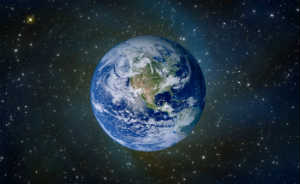
The Rhythm, Harmony, Support Of The Natural World, Value Of Nature, Its Force, Energy & Power, Natural Resources The invisible, benevolent presence, energy of nature, its power, harmony, beauty and companionship, its giving and receiving, awe and wonder (uncertainty and chaos of life), as can be silence in or out of nature, the galaxy, universe, has a different time and space and is outside of human conflict. The way we humans treat the energy of nature as our home, the planet, may concern us and we may overlook that land gives us life, nature is part of every human being, and every person is part of co-creative nature - part of the natural world, which supports us. Whether in stillness, silence or solitude, or whether sharing nature with others, breathing in the fresh air, appreciating sunlight and darkness, the night and day sky, the oceans, landscapes, mountains, winds, interacting and relating closer with the energy of nature and its elements of earth, water, fire, air, ether, getting in touch with the natural world can be uplifting, putting us in touch with ourselves, our senses, sexuality, the wider world and maybe a sense of consciousness where nature, animals are simply in the moment and evolving through evolution, as Darwin would acknowledge. (Observed by Professor Jaak Panksepp, there are instinctual communities in nature, emotional feelings in animals and humans - rage, fear, sexuality and lust, care, panic, grief and play which can trigger the animal human attachment of bonding through engagement, comfort, play and safety). Like us, nature is interdependent on the right conditions to flourish. Bringing nature and beauty into our life, our very being and other human beings - the listening to, feeling natural environment (e.g. animals, birds, the wind, water, rocks, plants, trees, scenery, the seasons, the so called small things - a mountain view, a sunset, a butterfly, flock of birds, animal sounds, a child's natural laughter) - listening to, tuning into natural sounds and connecting to nature, being in it, part of it, with it, embedding nature in us - everyone and everything around us, participating with it, surrendering to it, trusting it, imagining it, can have a restorative value, nourishing us, regulating our nervous system - frequency alignment. This can teach us there are things we can't change, control, yet also illuminate respect, humbly showing us how small we are in the vastness of the universe, life's interwovenness, living under one climate - for we human beings have our own eco systems and are part of a larger eco system. For some the sublimeness of nature, contemplation may lead us to losing a sense of our own importance, spiritual enquiry, connection. Whether it's being in a local park, sitting in nature, experiencing its interconnectedness, beauty, hiking hills, mountains, swimming in lakes or the sea, sensing the universe can give us an experience of awe, wonder, and being in and connecting with nature for most of us gives us a sense of peace, calmness, harmony. This connection with the rhythm, flow of nature - its balance and how it also embraces its mutually dependent opposites (e.g. its competitive and collaborative nature, tree branches and roots, cold winter killing unnecessary germs in the soil and the renewal of springtime), sustainability and diversity, changes, transformations and how it rejuvenates through the season's rhythms (for example winters' gestations, springs' renewal, summers' growth, autumns' harvest and the return of winter), ongoing cycles of birth, rebirth, life, growth, radiance, letting go, death, decay, rebirth and life has evolutionary influences going back to our ancestors and the evolving force of the healing power of nature may put us in touch with existence (and existential dilemmas) our sense of or fears of our own mortality alongside life-meaning love, peak experiences. Some people may acknowledge, that as humans have respect, and rights to life, so too do animals and want to give legal rights to nature - all life, protecting natural entities through trusteeship, stewardship, guardianship - an aspect of Maori living. And others may connect to animism - that spiritual life is everywhere.
We are nature, we come from nature, we return to nature.

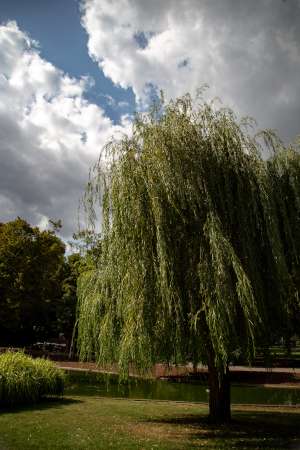
Energy & Quality Of Trees The qualities of trees can inspire us. Their presence - like our own, can refresh others, provide support. (The roots of trees, often invisible, can remind us of our own unconscious.) Trees, like us, keep growing no matter what by staying rooted (see also Re-Connecting To Who We Are, Being Grounded & Secure, Inhabiting Our Body, Standing Up For Ourself) and for us - being in our own values, rooting for ourselves and others can be supportive. Trees, like each human being, are unique - some stand tall, whereas others bend and both of these qualities have advantages. Strength is not only about power, it's also about flexibility and ability to soften any hard edges. It was Robert Jordan, who in "the Fires Of Heaven" wrote, "The oak fought the wind and was broken, the willow bent when it must and survived". Visually, the oak tree can seem more resilient than the willow tree, yet its branches will snap in a strong wind, and the whole tree can be uprooted. (It is thought that the oaks in Sevenoaks were planted 800 AD, yet 6 of these mighty oaks were knocked to the ground and only one oak remains, due to a storm.) Sometimes we need to be like an oak tree, upright and strong, yet other times more mobile, flexible, resilient, have strength through yielding, knowing what to let go of all that is not essential (see also Rigid Boundaries). Like the grace of the weeping willow tree, we may need to bend with the wind at times, go with the flow with things. And when we are flexible like a willow tree, we can survive life's storms, trusting whatever comes our way, so when there is the unexpected or if someone disagrees with us, we don't have to always meet force with force. We can be inwardly strong and gentle, bends without breaking (see also Flexible Thinking, Cognitive Flexibility), so we don't topple over, waste energy resisting things. Connecting to the energy of trees, we too may want to resonate with, also notice our own energy vibration. (See also Soft Living, Living A Soft Life Powerfully)
Earth's Imprints
Imprints leaving their trace
Lines designing a face
Trees ingrained by rings
'Tis wisdoms' sufferings.
